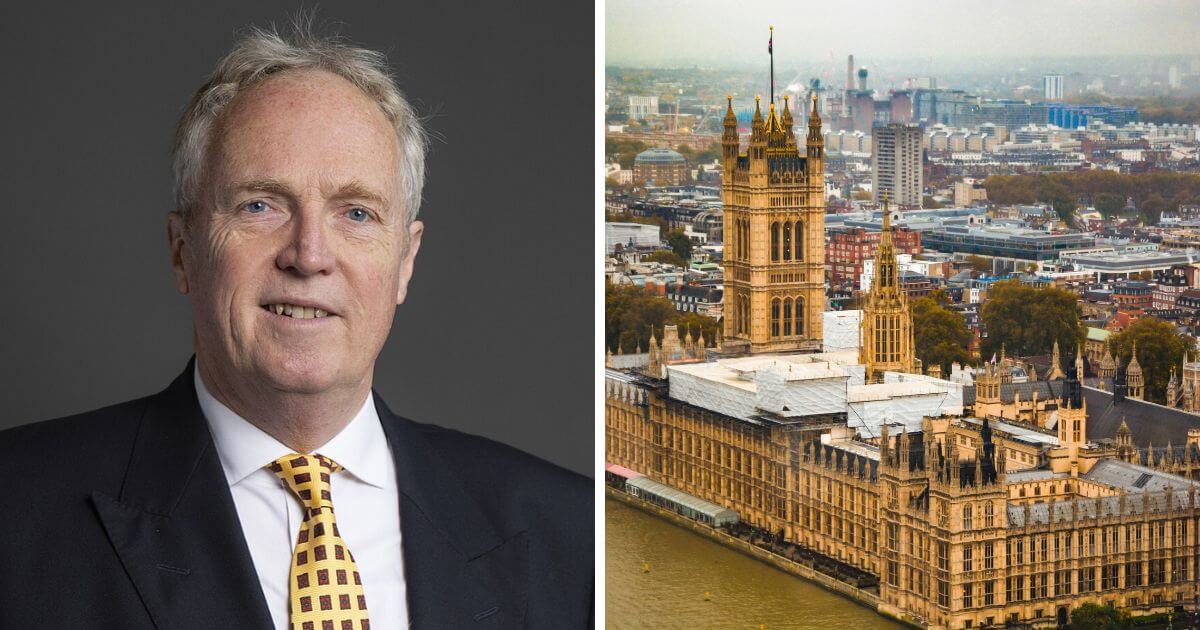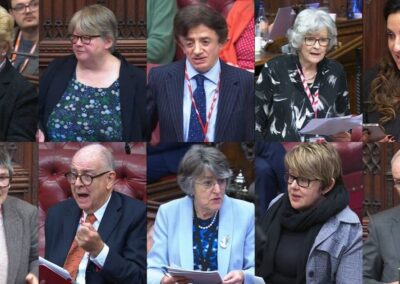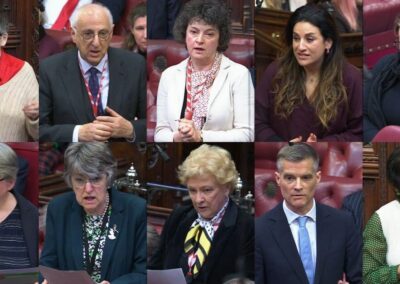In a further blow to Kim Leadbeater’s assisted suicide Bill, another MP who initially backed the Bill at Second Reading has indicated he has changed his mind, and will vote against it at next month’s Third Reading vote.
Explaining his reasoning, Liberal Democrat MP Brian Mathew expressed his concerns about terminally ill people feeling they “have become a burden upon their family”, saying “I share the concerns of many constituents that individuals facing terminal illness will take the decision based on concerns that they have become a burden upon their family”.
“This is a serious concern for me; I worry that in someone’s final days, this question will loom heavy when it does not need to”.
Mathew was critical of the Bill for “inviting interference of the judicial process into the delicate and pressing needs of the end of life where many, who will be unlikely to have considered assisted dying, may now face worries from it”. Stating that “the current state of end-of-life care cannot be described as optimal”, Mathew warned that, due to the “patchy” provision of hospices, “an assisted death might be seen as the preferred option”.
Mathew, who voted for the Bill at Second Reading last November to allow “time and opportunity to scrutinise and improve the Bill”, blasted the Report Stage debate for “inadequately” answering his concerns, saying “Coming to the third reading, I am minded to vote against the Bill, as I have several concerns I feel have been inadequately answered by the report stage”. The Report Stage debate was branded by critics as “chaotic” and “a disaster” after MPs debated only two of over 100 amendments put forward before running out of time.
MPs “now having doubts” about assisted suicide Bill
The Guardian described Mathew’s apparent change of mind as a “sign” that support for the Bill is “ebbing away”. Critics now believe there is a good chance of the Bill failing during the “knife-edge” Third Reading vote in June, with Conservative MP Andrew Rosindell citing “many colleagues who voted for the Bill at second reading but are now having doubts”.
Rosindell added “Momentum is against Leadbeater’s Bill and there is every reason to believe we can defeat it at third reading”.
Former Conservative MP Lord Jackson said “It does feel like things have changed in regards to the Leadbeater Bill”.
“There is now a steady stream of MPs flipping against the Bill and, if this continues, it looks like it will be a knife-edge vote next month”.
Risk of “suicide culture” if Leadbeater Bill becomes law
The Bill passed its Second Reading by 55 votes. If 28 MPs switch their stance, it will be defeated at Third Reading. Mathew’s announcement comes as an increasing number of MPs are changing their minds about the legislation, joining Reform’s Lee Anderson and his former colleague Rupert Lowe who publicly declared in February that they would be changing their vote.
During Report Stage, Jonathan Hinder MP announced that, while he had voted in favour of the assisted suicide Bill at Second Reading, his “concerns have only deepened” over the course of Commitee Stage and that he would now be voting against the Bill. Hinder is joined by former Conservative Minister George Freeman, who explained his change of stance, telling Times Radio that there is a risk of a “suicide culture” and a “Dignitas industry” being created if the Leadbeater Bill becomes law.
Explaining his reasons for changing his mind, Conservative MP Andrew Snowden complained that the Bill had “already been watered down from its original safeguards” and expressed concerns about the “process” of a Private Members’ Bill for the legislation. Snowden said “[H]ow can I vote to allow the state to sanction, determine and administrate assisted suicide, if I have this much doubt in my mind about the parliamentary process and as such the robustness and workability of the subsequent legislation?”
The New Statesman also reported that Naz Shah MP has had conversations with “quite a few” fellow Labour MPs who “have changed their minds from being in favour to against” the Bill. Shah explained “Somebody very bluntly said, ‘Oh no, I’m definitely not voting for this. I ain’t having my old man being coerced and feeling that he’s a burden and he has to go. I ain’t having that’”.
Concerns about a lack of safeguards and palliative care
Liberal Democrat MP Steve Darling is now “marginally against” the assisted suicide Billl, due to concerns about a lack of safeguards and the broken health and care system. While still undecided about how he will vote, Darling said he now had “more concerns than I did then” (in November at the Second Reading vote).
Some MPs who abstained from voting at Second Reading have now moved to opposing the Bill, including Labour MP for Crawley, Peter Lamb, who said “I do not believe that the case has been made for a change in the law, and I therefore believe I am obligated to oppose the passage of the Bill through the remaining stages of the process”. Lamb also cited the need to invest in palliative care as his most significant concern as well as the lack of parliamentary time available for consideration of the Bill.
Concerns about palliative care were also shared by Emma Hardy MP who has moved from abstaining to intending to vote against. Hardy expressed her fears that, because “palliative care access is worse in deprived areas, I fear that without concrete measures assisted dying could become [the] de facto option for socioeconomically disadvantaged patients who cannot afford the high quality palliative care we all deserve”.
Momentum shifting against assisted suicide Bill
Labour MP Debbie Abrahams and Conservative MP Charlie Dewhirst, who did not vote at Second Reading, both told The Telegraph they now intended to vote against. Dewhirst said he “can’t support it in all good conscience” because “[t]here seems to be a lack of protections, for example, for people with autism. And it really feels to me that it’s far wider than we were assured it was going to be to start with”.
Labour MP Karl Turner has also changed his position from voting for the Bill to abstaining. Turner said he would now vote against if he were “forced” to vote and if abstaining were not an option, also explaining that he was “worried” about “the safeguards in terms of judicial scrutiny”. Liberal Democrat MP Bobby Dean and former minister, Sir David Davis MP, who both previously voted for the Bill, are now reported to be undecided.
Momentum appears to be shifting against the Bill, with key figures and organisations speaking out strongly against supporting the legislation. In a move described by journalist Dan Hitchens as “an absolute bombshell statement”, the Royal College of Psychiatrists (RCPsych) announced it “cannot support” the Bill, citing “many, many factors” that need addressing. The RCPsych said “With too many unanswered questions about the safeguarding of people with mental illness, the College has concluded that it cannot support the Bill in its current form”.
Meanwhile, Justice Secretary Shabana Mahmood has expressed her concerns about the “inadequacies” of a Private Members’ Bill as a suitable “vehicle for such wide societal change” and was critical of the “curtailed” and “short” nature of the Report Stage debate earlier this month. She said “There are huge implications here and the debate that we’re having is curtailed, it is short. We saw that last Friday. I don’t think it’s the right thing to do”.
The Justice Secretary’s comments are another setback for Leadbeater because the Ministry of Justice would be partly responsible for the implementation of the assisted suicide Bill if it were to become law.
Spokesperson for Right To Life UK, Catherine Robinson, said “There is now no doubt the tide has turned on this dangerous Bill as many MPs who voted for the Bill at Second Reading change their minds”.
“There is still a lot of work to do between now and Third Reading. It is vital to keep contacting MPs to highlight the flaws and unworkability of the assisted suicide Bill. However, we are now firmly on track and we can win this”.












